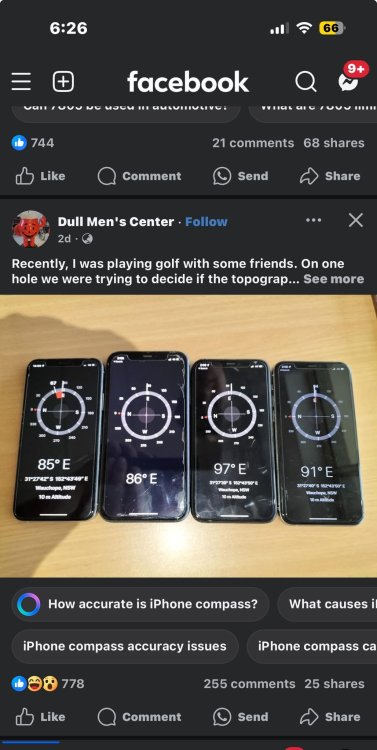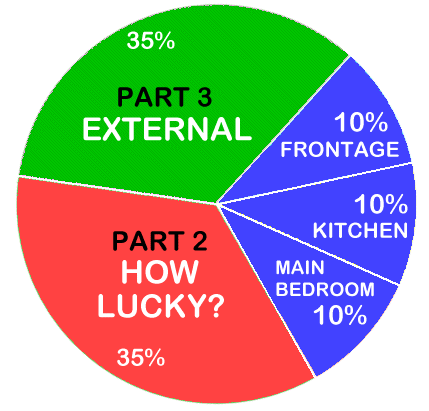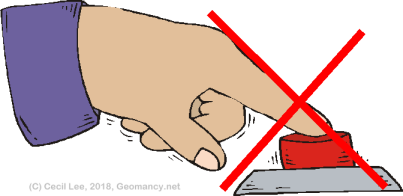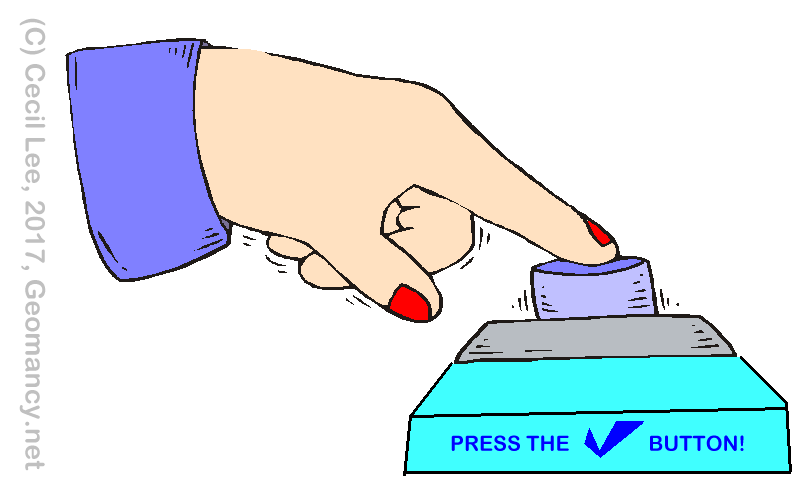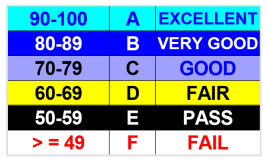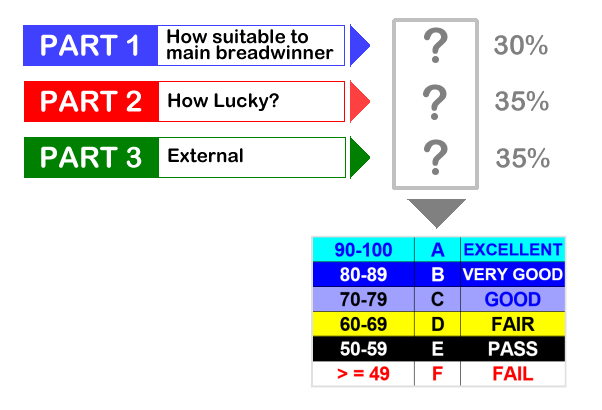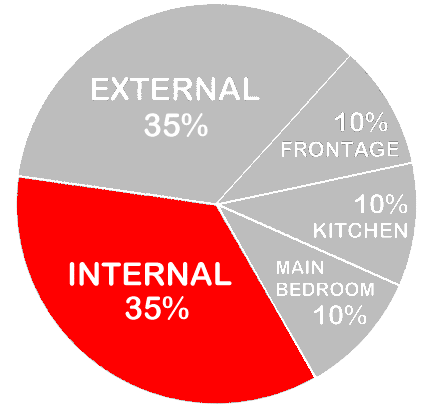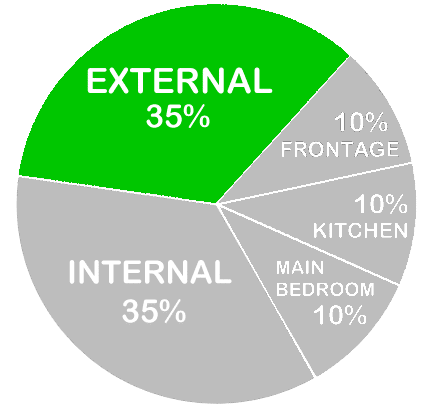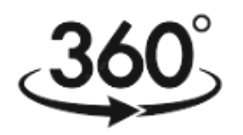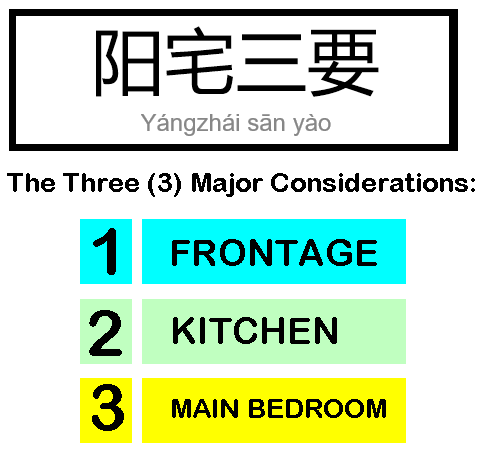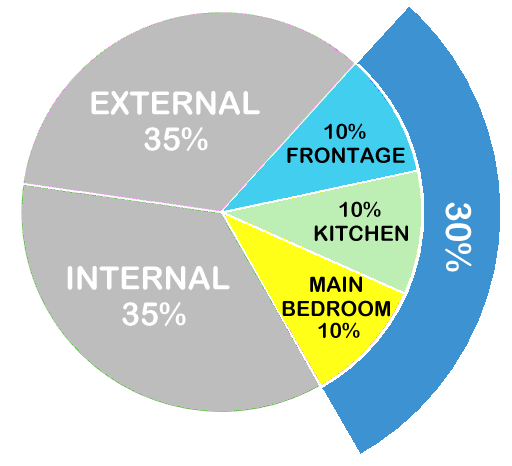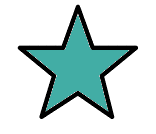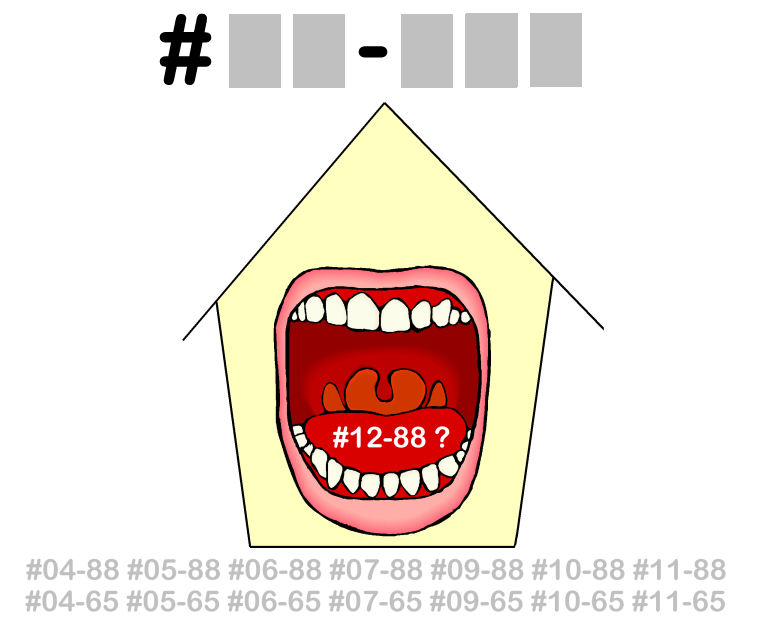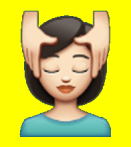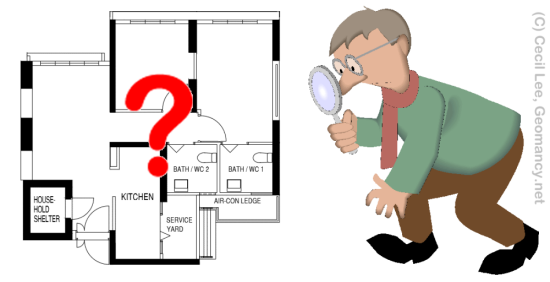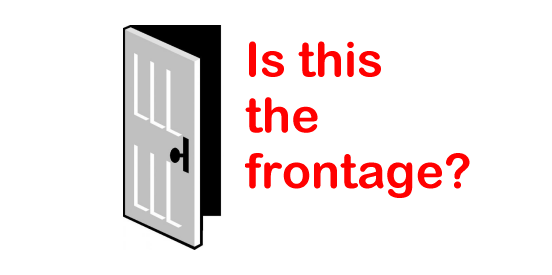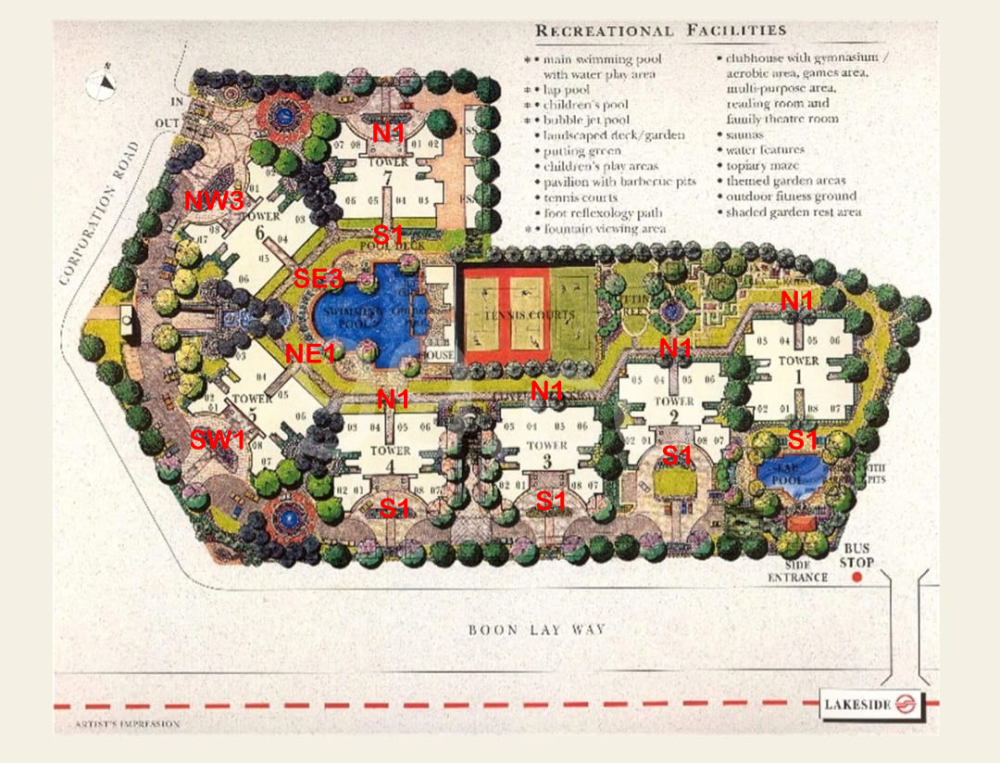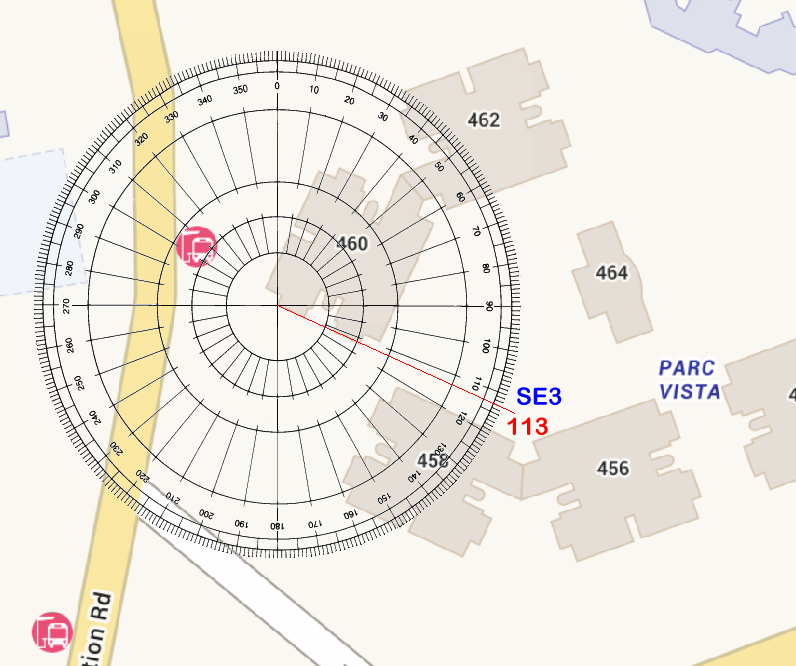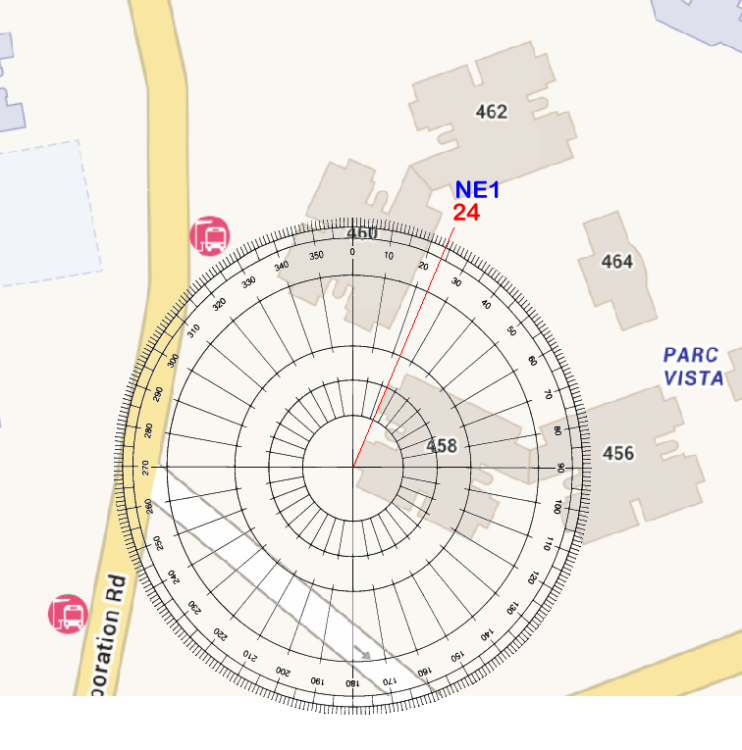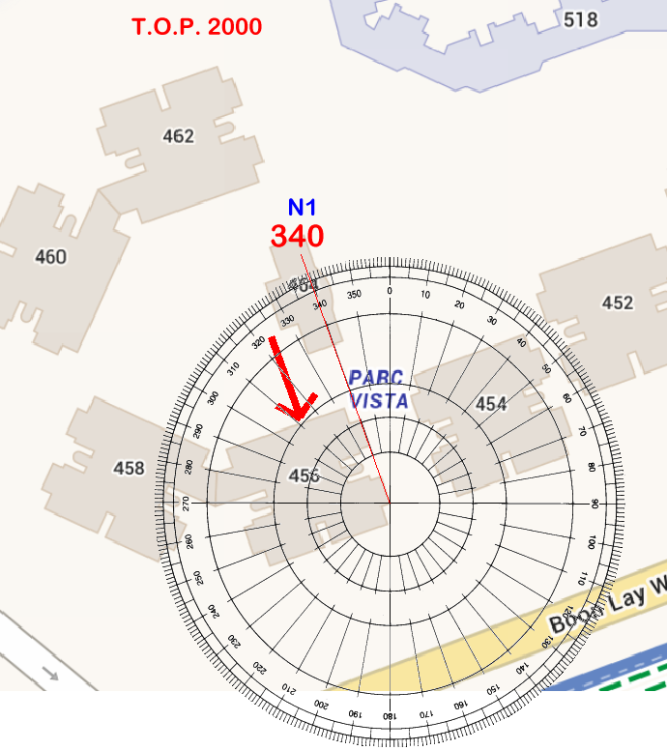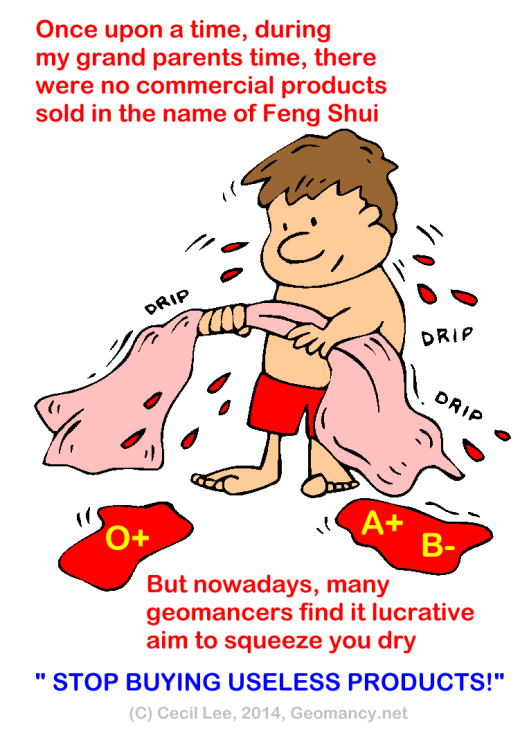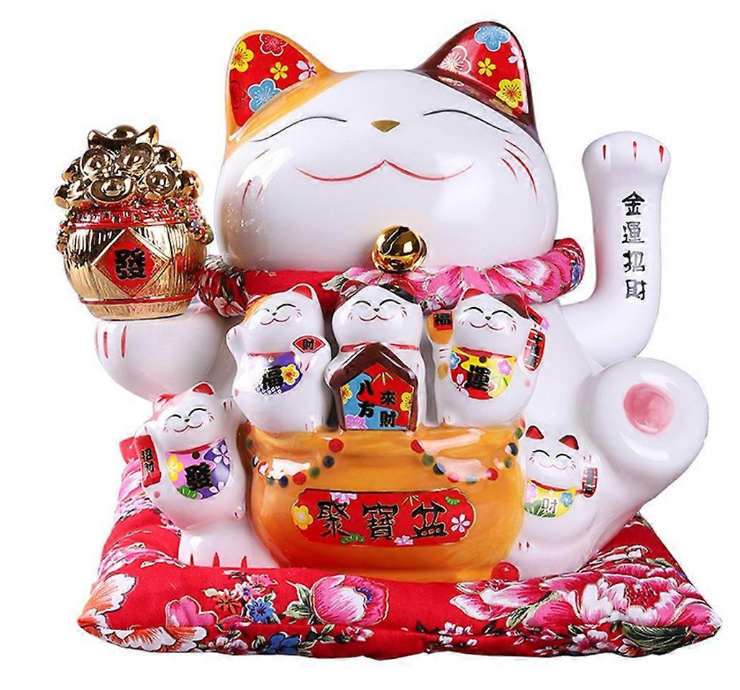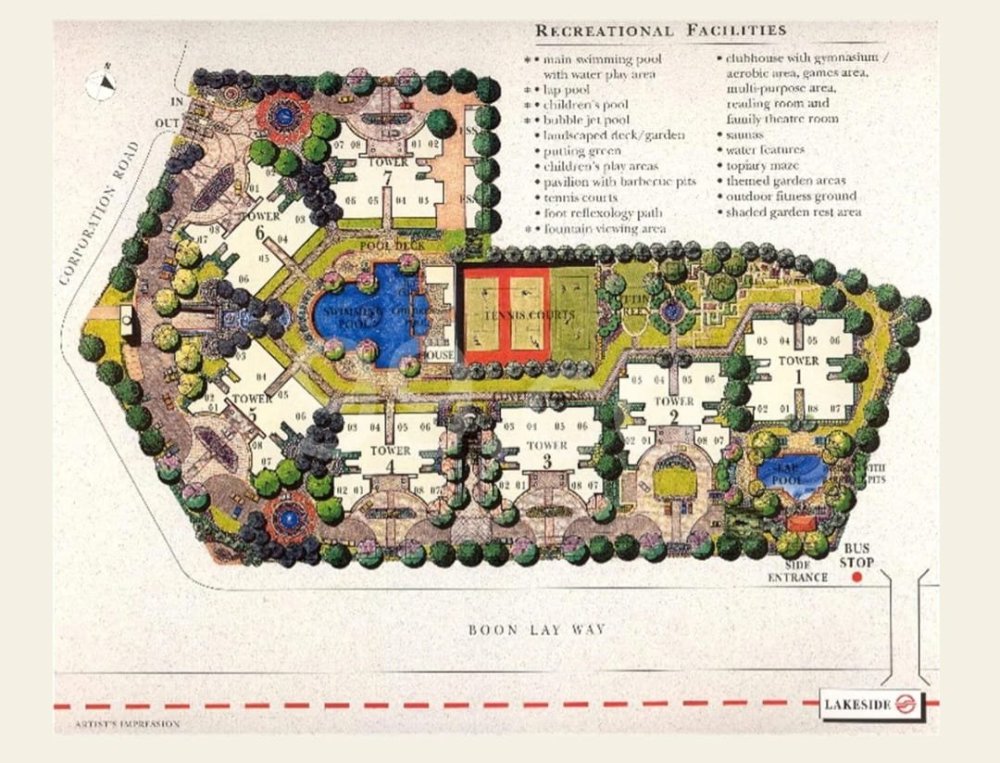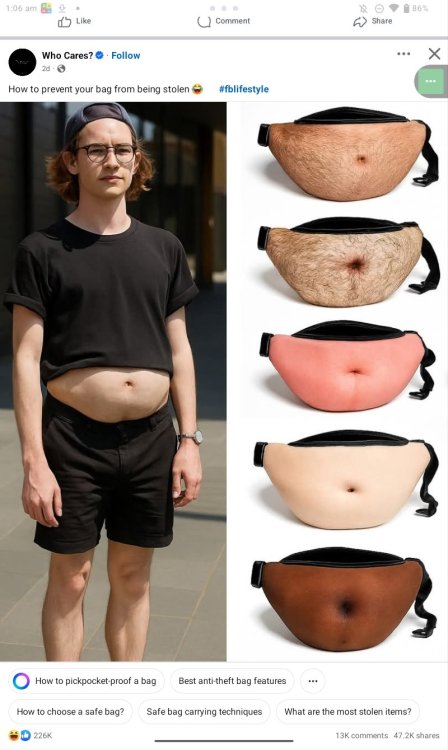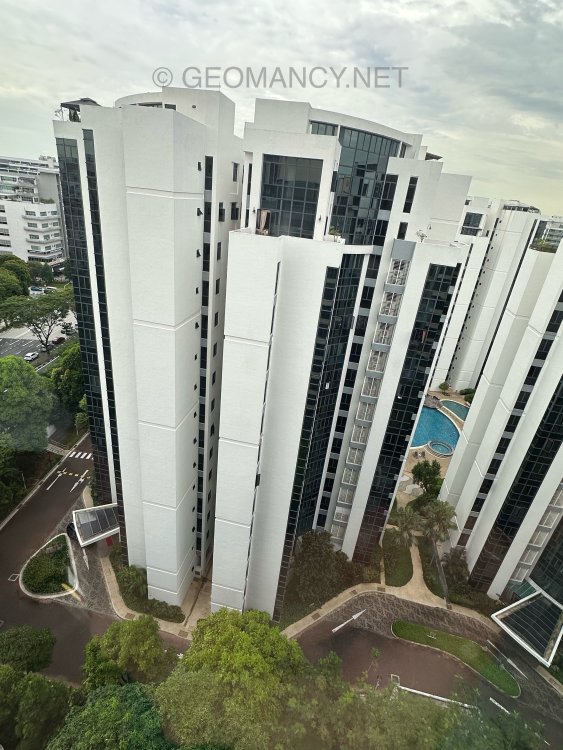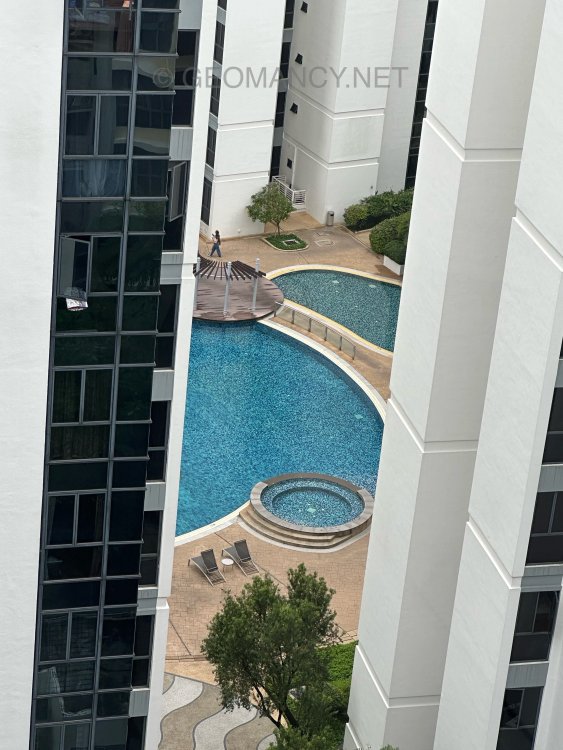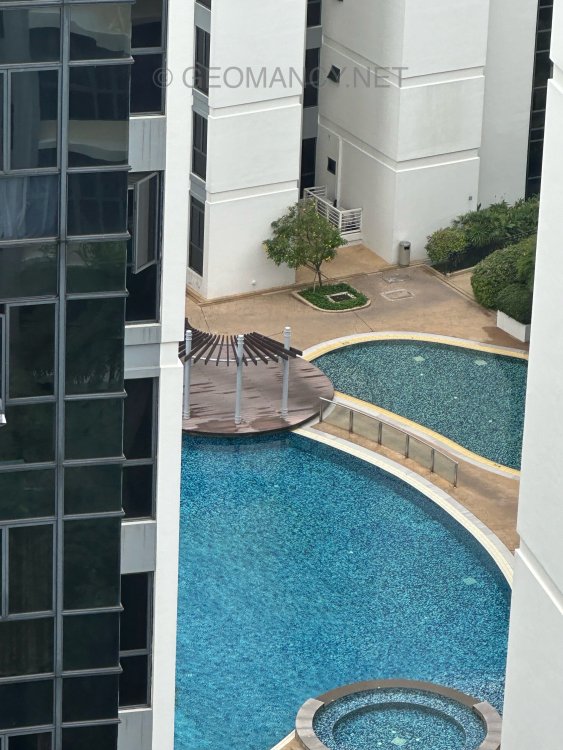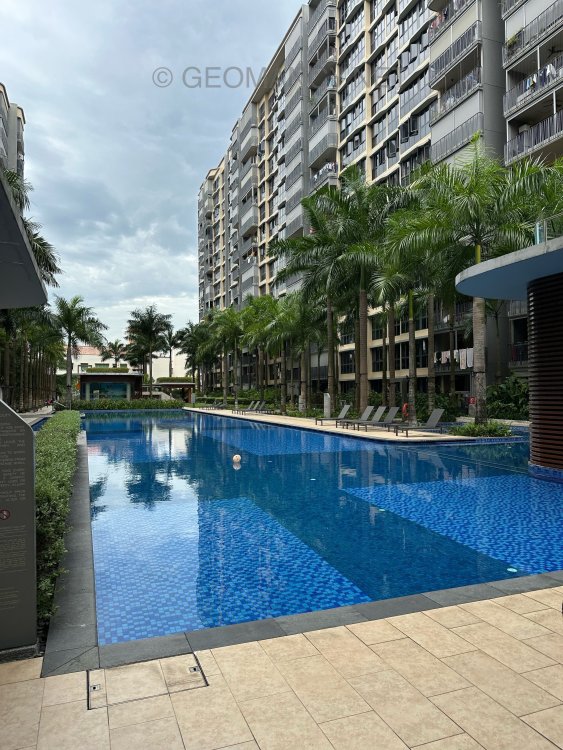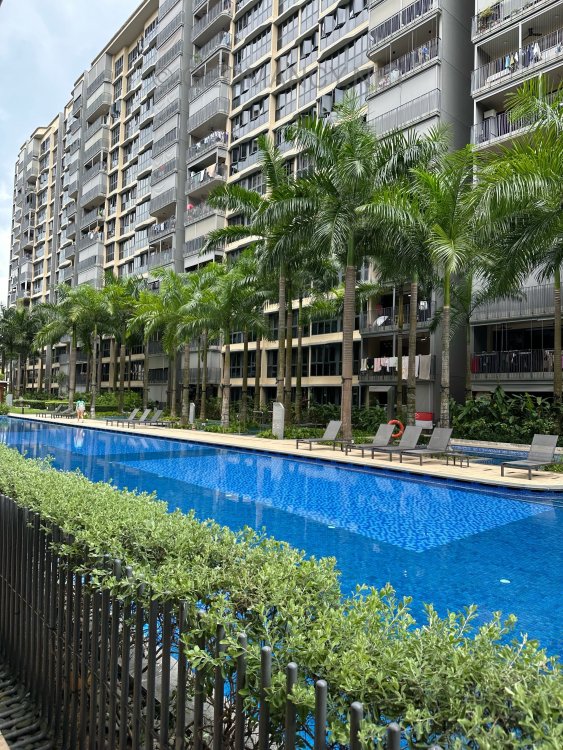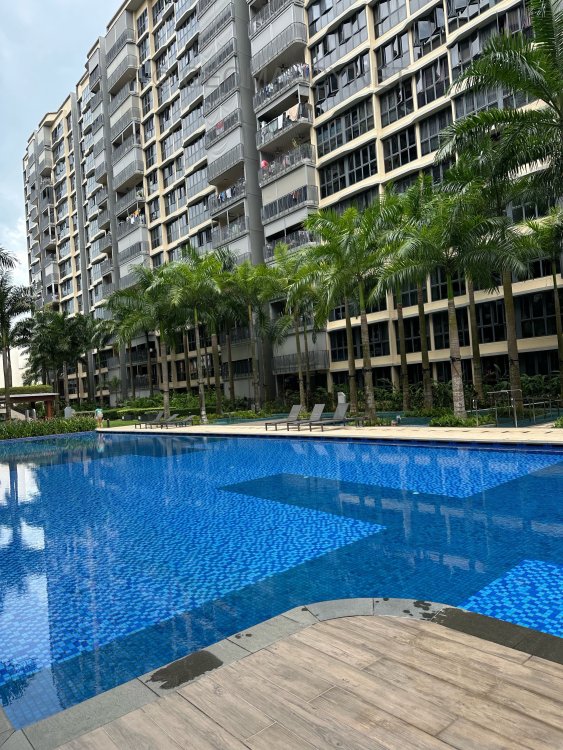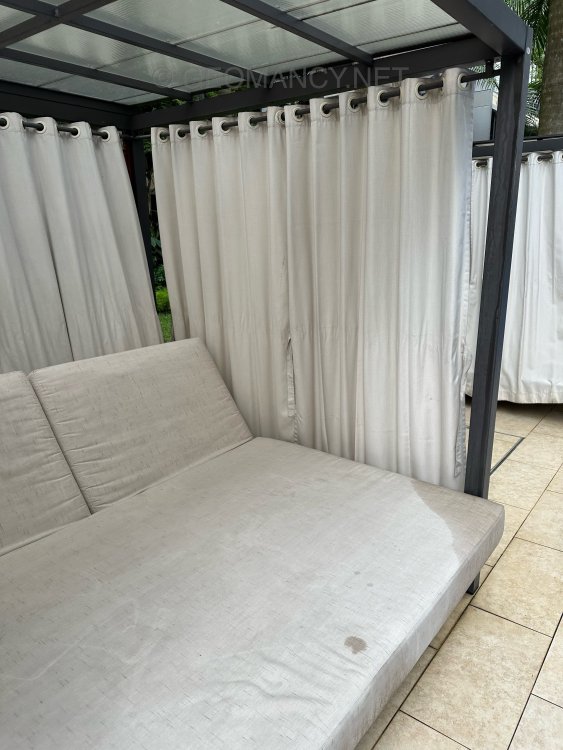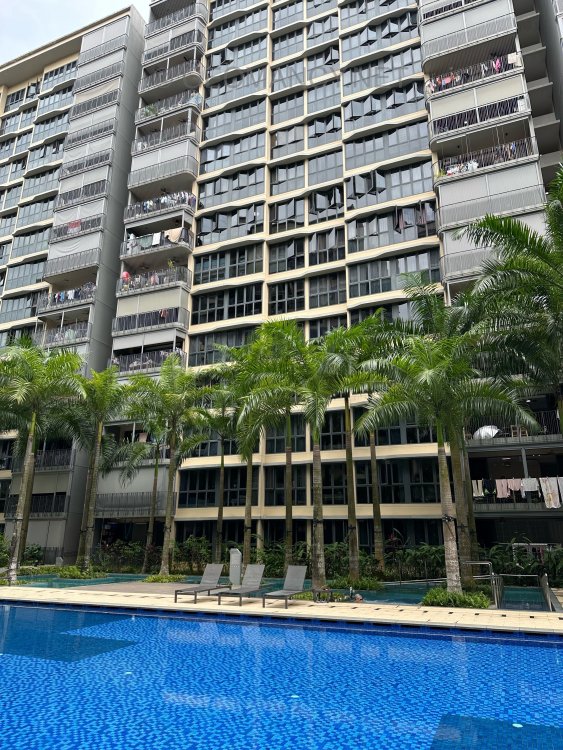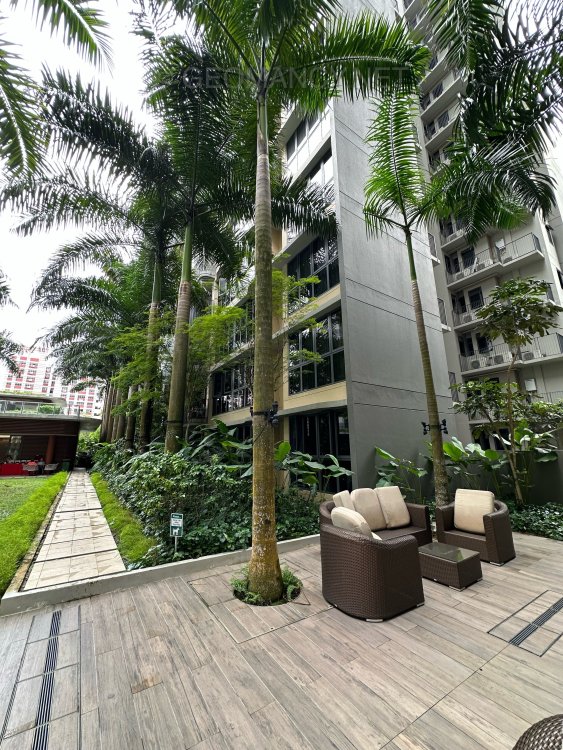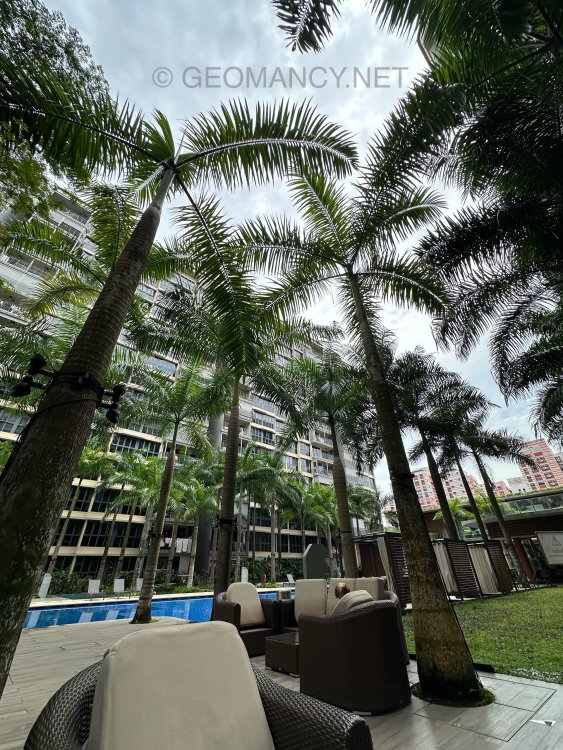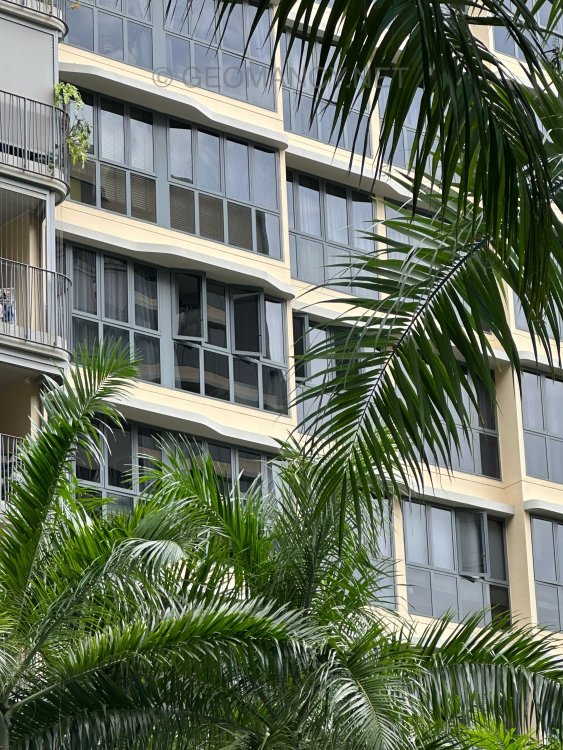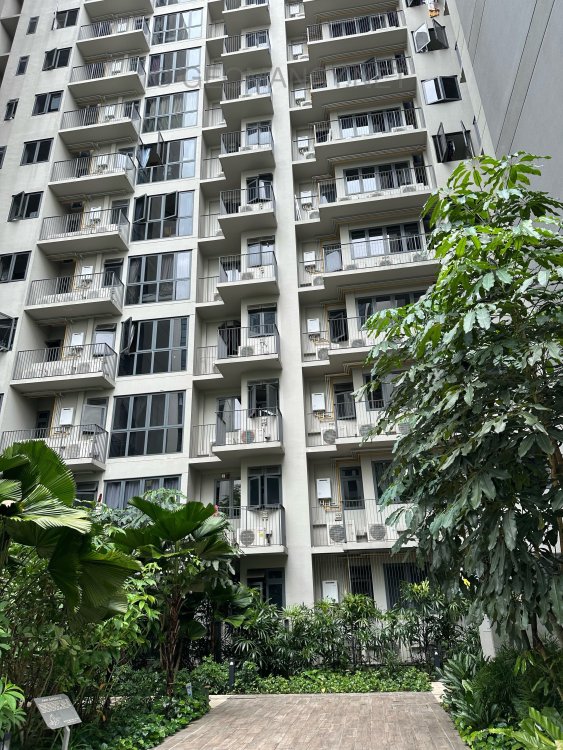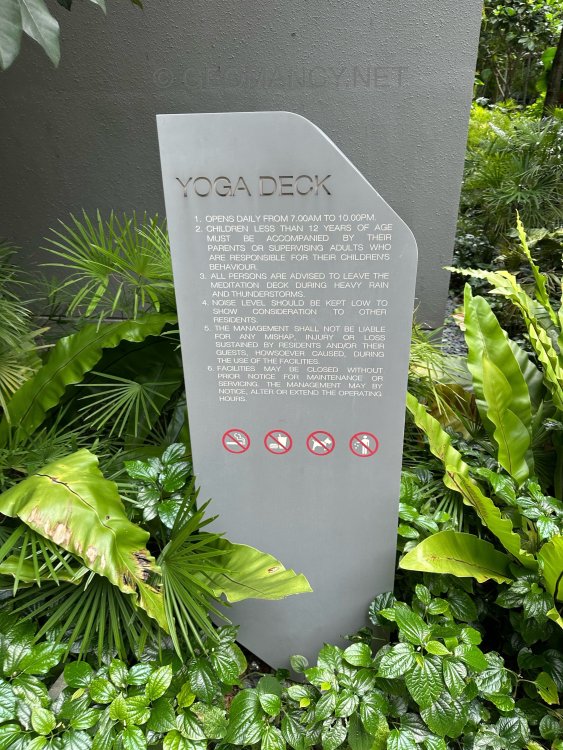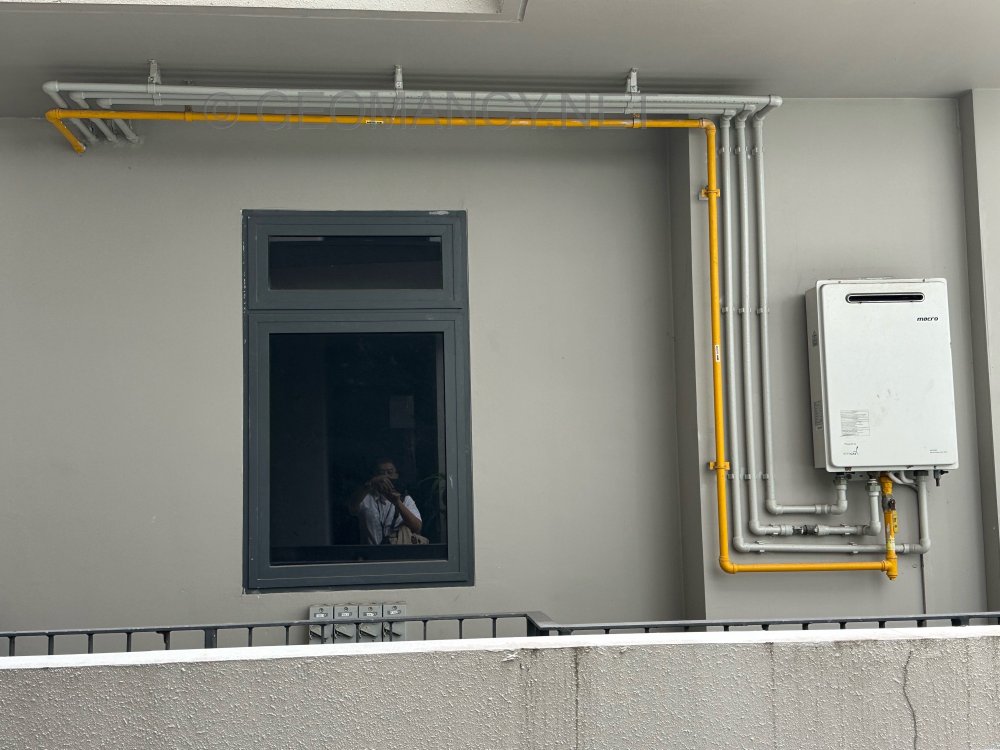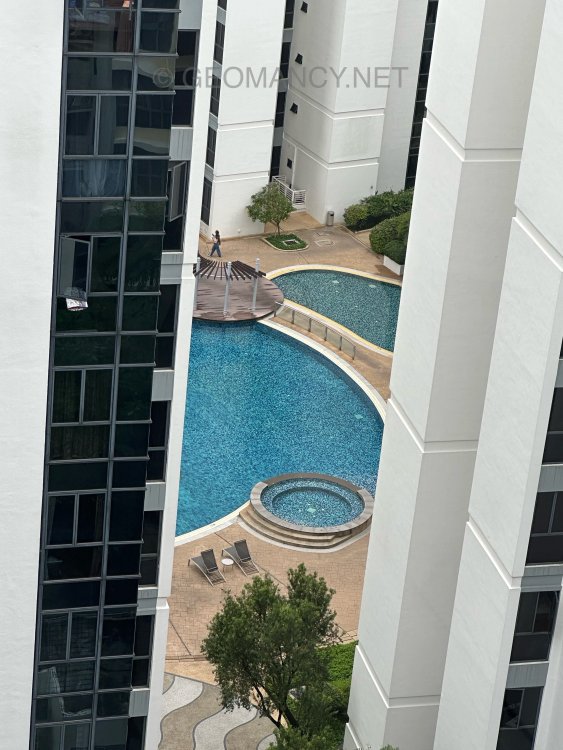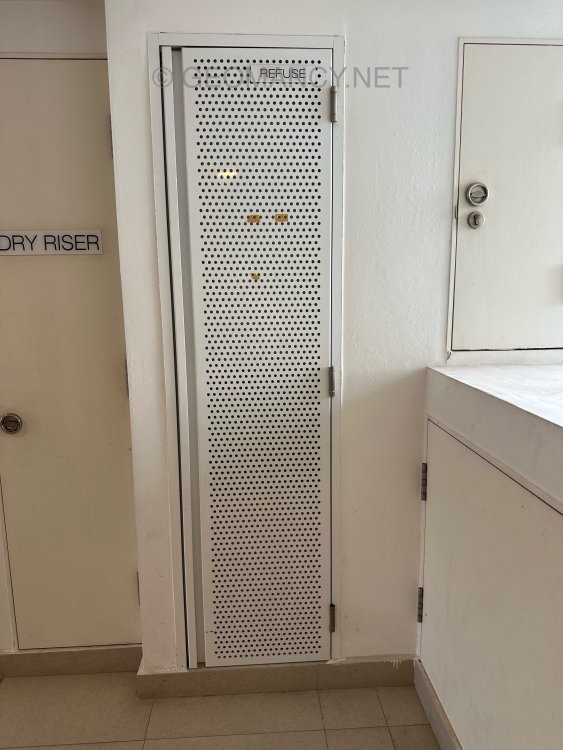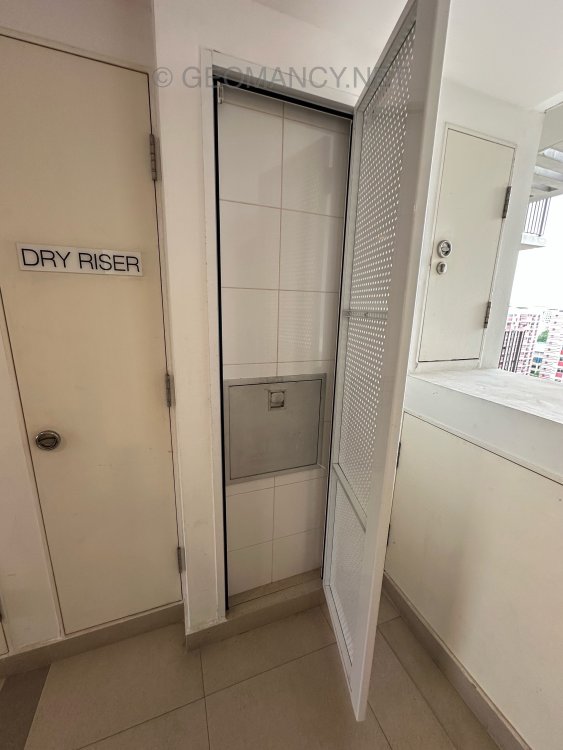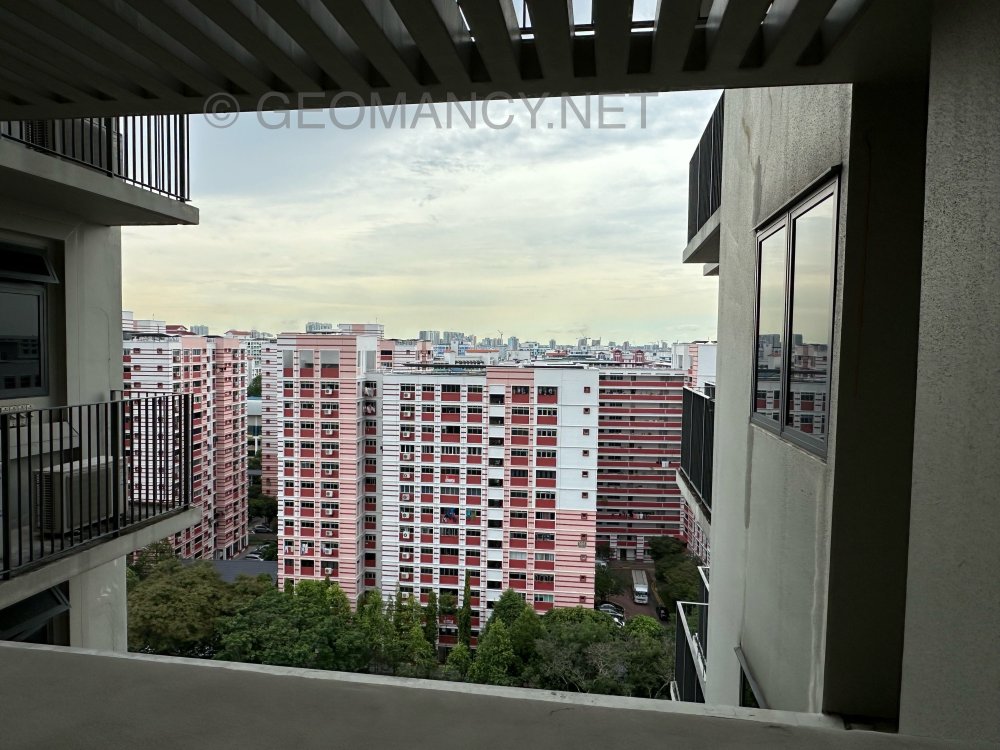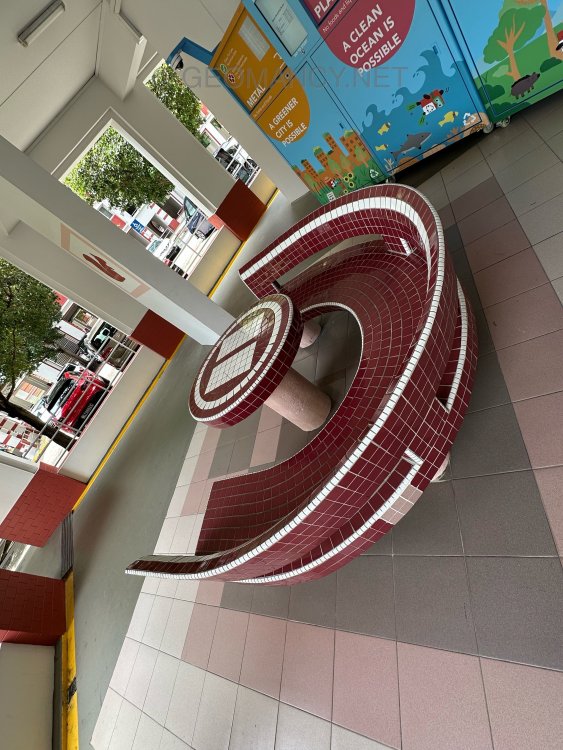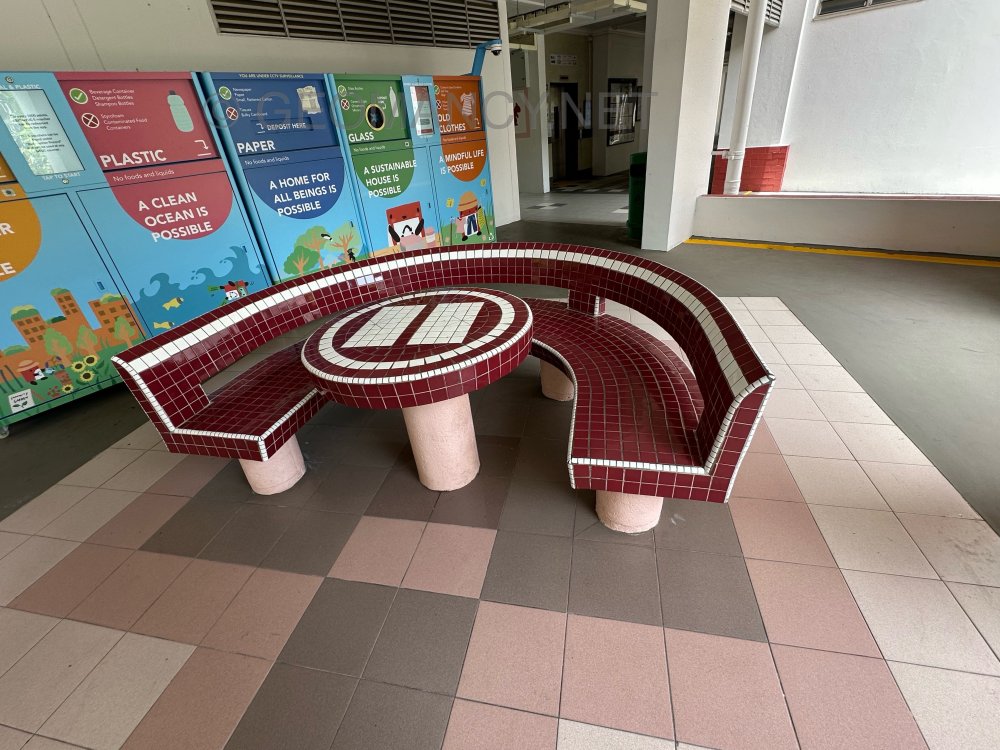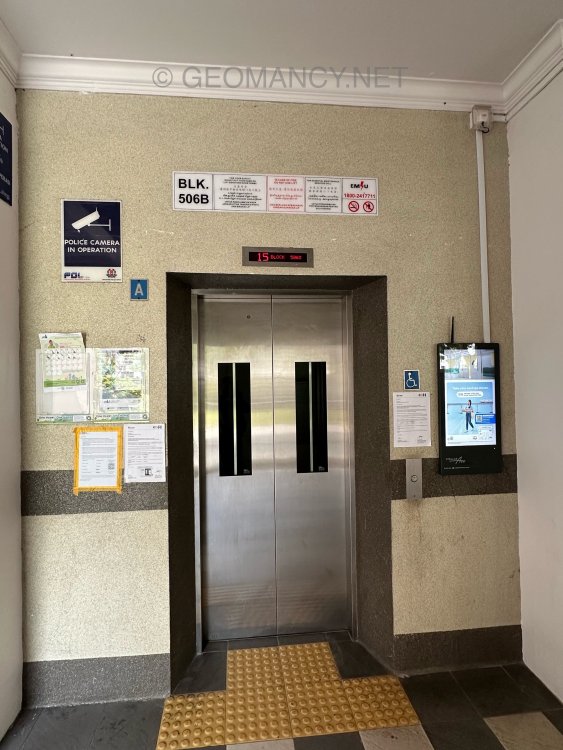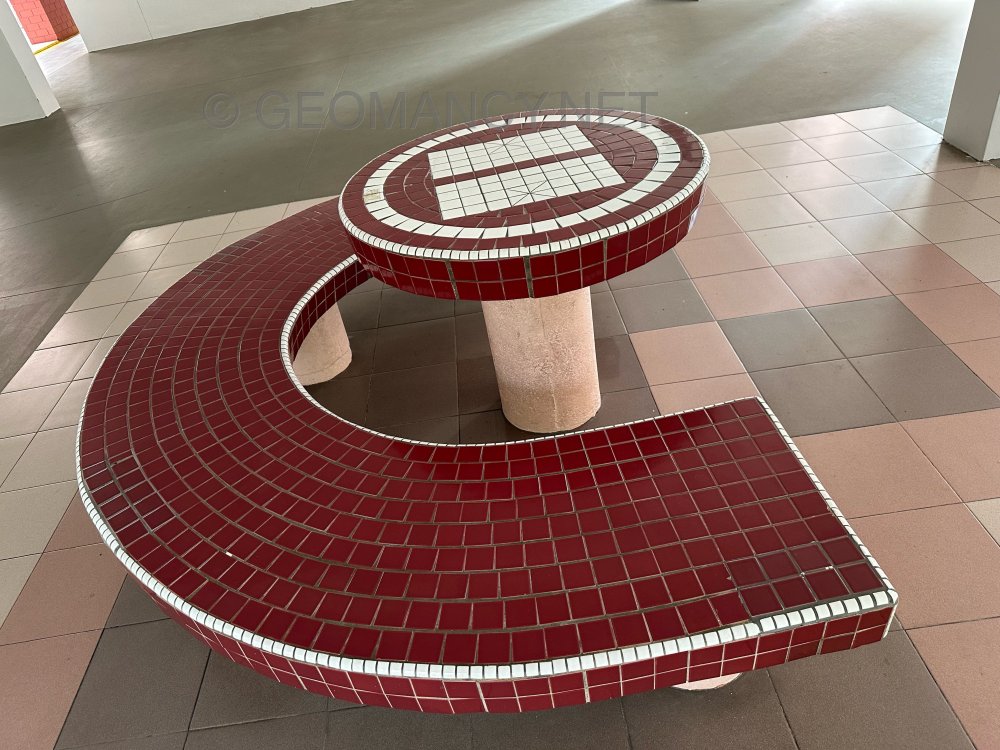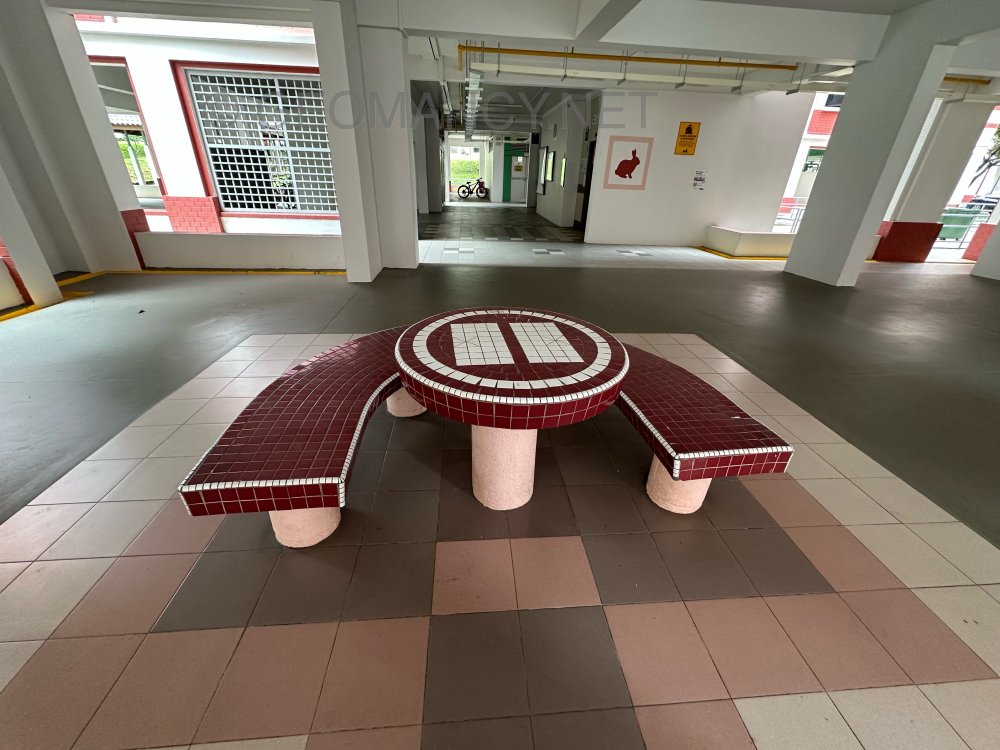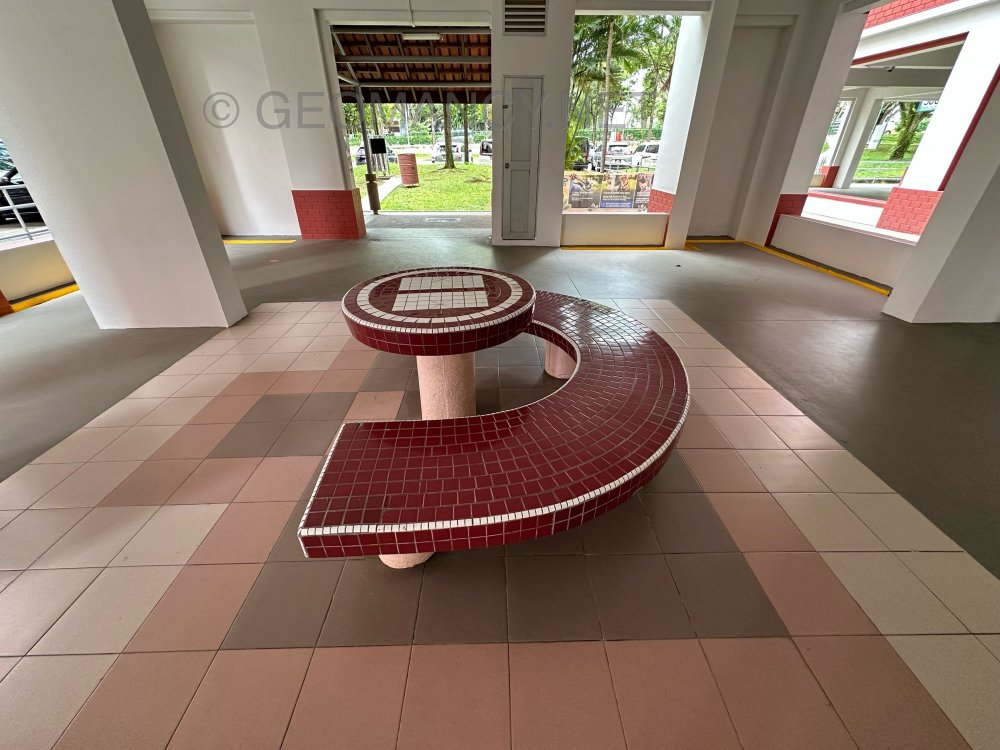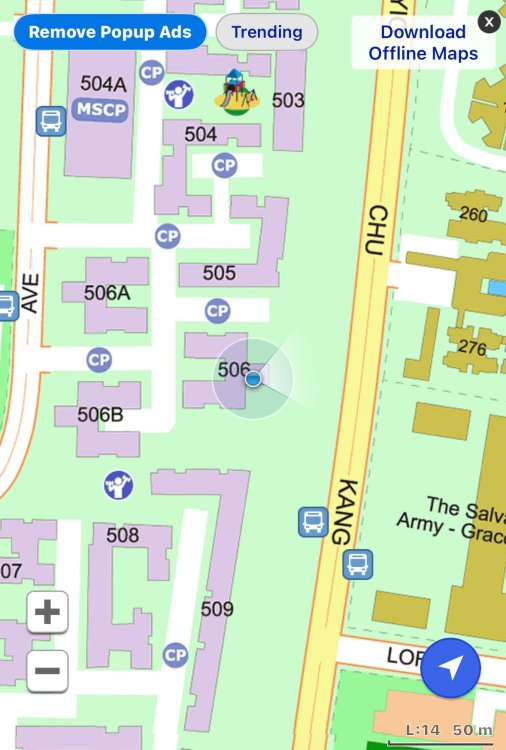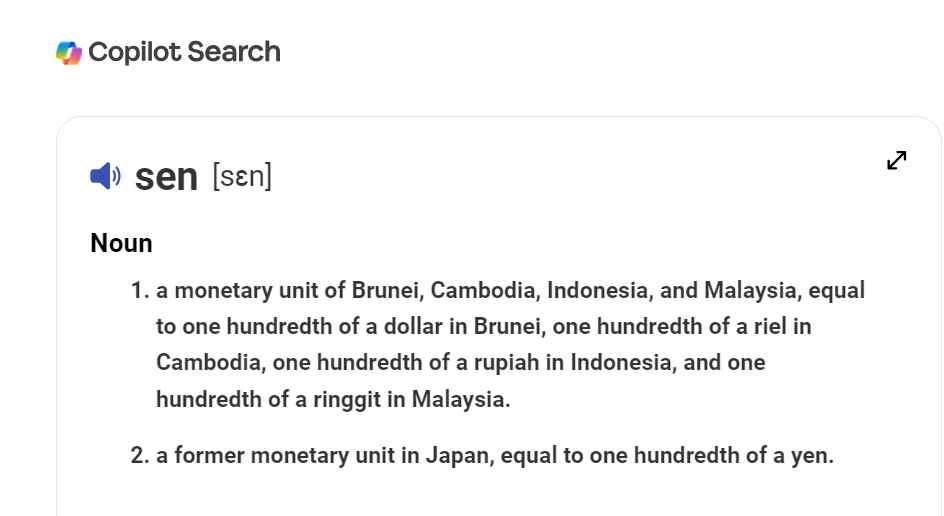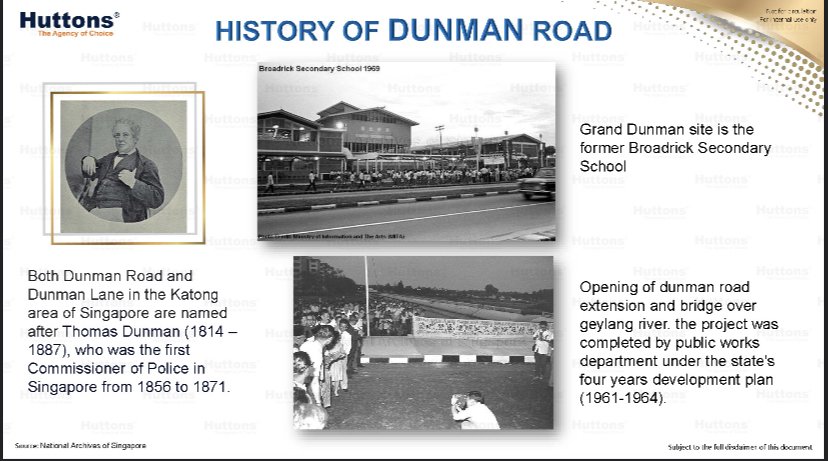All Activity
- Past hour
-
How to determine which sector is missing or projection?
Cecil Lee replied to NandM's topic in General Help
To determine the **"Center-of-Gravity"** (also known as the central point or focal balance) of a unit in Feng Shui, especially for the purpose of accurately plotting a Flying Star Chart, follow these steps: Step-by-Step Method **1. Obtain a Scaled Floor Plan** - Use a scaled architectural drawing of the entire unit. Make sure the plan includes all enclosed areas, including balconies (if they are part of the living space), bay windows, and irregular extensions. **2. Outline the Actual Usable Space** - Trace the perimeter of the entire space, including all extensions that form part of the internal area. - Exclude external features that do not directly contribute to the internal Qi (e.g., outdoor gardens, non-integrated car parks). **3. Find the Geometric Center** - Place the plan on a flat surface. - Using a ruler, draw two diagonal lines from opposite corners of the floor plan; where these lines intersect is the geometric center. - For irregularly shaped units, break the plan into simple geometric shapes (rectangles, triangles), find the centers of each, and then calculate the weighted average or visually estimate a central point based on proportion and layout. **4. Consider Qi Flow** - While the geometric center is a starting point, assess how Qi actually circulates. The "center-of-gravity" may shift if there are large open spaces, rooms that act as focal gathering points, or architectural features that draw Qi in a specific direction. **5. Adjust for Functionality** - Avoid placing the center in areas that are unused, obstructed, or physically segmented (e.g., inside a bathroom, closet, or void space). - If the geometric center falls outside a practical area, adjust slightly to the nearest usable, open space. --- ### **Quick Example** - **Regular Rectangular Unit:** Draw two diagonals between corners. The intersection is your center-of-gravity. - **Irregular L-Shaped Unit:** Divide into two rectangles. Find the center of each, then estimate a central point that balances both shapes proportionately. --- ### **Why is this important?** Identifying the true center is key for **Flying Star Chart** placement. This point serves as the origin for compass measurements and sector division, making sure your Feng Shui assessment reflects actual energy dynamics and not just theory. --- Summary The "Center-of-Gravity" is the central, balanced point within your unit's layout—the anchor from which all Feng Shui calculations and energy assessments emanate. Accurately finding this spot ensures your Flying Star Chart will be plotted correctly, resulting in a more effective and meaningful analysis of your home's Qi flow.- 2 replies
-
- missing corners
- projection
-
(and 1 more)
Tagged with:
- Today
-
In Summary Thank you for sharing your thoughtful perspective. You’re absolutely right about the symbolism of **green** in Feng Shui—it’s widely associated with growth, renewal, and vitality. Incorporating green elements can help enhance the Qi and bring a sense of freshness to a space. However, as you point out, Feng Shui is not a one-size-fits-all solution, especially when it comes to human behavior and interpersonal dynamics. While Feng Shui can improve the environment and potentially promote positive energy, understanding people—their motivations, responses, and interactions—often requires looking beyond environmental factors. **Ba Zi (Pillars of Destiny)** offers deeper insights into individual personalities and life tendencies, but its practical application in large groups or organizations is limited due to the complexity of analyzing so many individual charts and their interconnections. For environments with many people, such as workplaces or community spaces, applying principles from **Organizational Behavior** is much more effective. This discipline relies on research-backed methods to understand group dynamics, leadership styles, motivation, communication patterns, and even resistance to change—especially in adults whose behaviors and personalities are more stable after early adulthood. +++ In Conclusion: - **Green** is a beneficial color in Feng Shui for supporting growth and vitality in your space. - **Feng Shui** enhances environmental Qi but cannot directly address complex human interactions or behavior. - For understanding and managing people within large groups, **Organizational Behavior** and related fields provide practical and scalable strategies, especially as individuals become more set in their ways over time. By integrating a harmonious environment through Feng Shui and applying organizational behavior principles, you can create both a supportive space and foster better interpersonal relationships.
-
Compass readings differ based on the spot from which they are taken. Compass readings vary by location due to magnetic declination, which is the angle difference between magnetic north and true north. Understanding how to take accurate readings is essential for effective application of Flying Star Feng Shui EXTRACT / SAMPLE +++ Source & Credit: Facebook Various iPhone models produce distinct compass readings. Just because you took some readings and appear to be that reading time and time again.... Go ahead! LOL Understand Why?
-
Compass readings differ based on the spot from which they are taken. Compass readings vary by location due to magnetic declination, which is the angle difference between magnetic north and true north. Understanding how to take accurate readings is essential for effective application of Flying Star Feng Shui EXTRACT / SAMPLE +++ Source & Credit: Facebook Various iPhone models produce distinct compass readings. Just because you took some readings and appear to be that reading time and time again.... Go ahead! LOL Understand Why?
-
Let’s clarify the concepts around **frontage**, **Conservatives**, and **Modernists** in the context of Feng Shui and home design, and examine why certain misunderstandings arose. 1. Who are the Conservatives and the Modernists? **Conservatives** and **Modernists** are terms used to describe two approaches to interpreting and applying traditional Feng Shui principles in home design: - Conservatives This group strictly adheres to commonly accepted or popularized methods in Feng Shui, often relying on simplified rules passed down through generations. They emphasize tradition and tend to see ancient teachings through a narrower lens, sometimes interpreting guidelines or rituals in a literal or surface way. - Modernists Modernists seek a deeper, contextual, or even scientific understanding of Feng Shui principles. They are open to reinterpretation, adaptation to current living conditions, and are willing to question or update traditional ideas based on new information, research, or architectural innovation. 2. Is the Frontage Always the Main Door? **Frontage** refers to the portion of the home that faces the most open, active, or “Yang” side—typically toward the street or main access. In Feng Shui, the **frontage** is crucial for determining aspects such as energy flow (“Qi”), orientation, and how the occupants interact with external environments. Main Door as Frontage? In *many* homes, especially traditional ones, the main door aligns with the frontage, serving as the primary point of entry for energy, people, and opportunity. **However, frontage is not always the main door.** - In some modern homes or complex dwellings, the main energy flow might enter from large windows, a balcony, or another architectural feature. For example, a house that faces a sweeping view but has its main door on the side may have its “frontage” defined by the windows facing the view, not necessarily the main door. - Frontage should be understood as the functional “face” of the home, which interacts most directly with outside activity, airflow, and light. 3. Why Did Conservatives Use Main Door as Frontage, and What Was Misunderstood? Ancient Knowledge: - Ancient Feng Shui texts emphasize the **interaction of the home with its environment**, including sunlight, landscape, airflow, and activity patterns. The “face” of the house should be determined by where life and energy gather or interact, not just by the position of the door. Modernist Approach: - Modernists revisit classical texts and environmental observation, understanding that frontage is situational and dynamic, not fixed. They analyze the actual sources of Qi based on design, surroundings, and even lifestyle changes. 4. In Conclusion: The frontage of a home is not always the main door—it is the primary interface with external energy and life, which can shift based on design and environment. **Conservatives** misunderstood the ancients’ teachings by equating the main door with the only possible frontage, missing the deeper, context-driven principles of true Feng Shui, whereas **Modernists** seek to restore those nuanced insights for contemporary living.
-

Generally Speaking....Is it Sitting or Facing?
Cecil Lee replied to myfs_104106's topic in General Help
Let’s clarify the concepts around **frontage**, **Conservatives**, and **Modernists** in the context of Feng Shui and home design, and examine why certain misunderstandings arose. 1. Who are the Conservatives and the Modernists? **Conservatives** and **Modernists** are terms used to describe two approaches to interpreting and applying traditional Feng Shui principles in home design: - Conservatives This group strictly adheres to commonly accepted or popularized methods in Feng Shui, often relying on simplified rules passed down through generations. They emphasize tradition and tend to see ancient teachings through a narrower lens, sometimes interpreting guidelines or rituals in a literal or surface way. - Modernists Modernists seek a deeper, contextual, or even scientific understanding of Feng Shui principles. They are open to reinterpretation, adaptation to current living conditions, and are willing to question or update traditional ideas based on new information, research, or architectural innovation. 2. Is the Frontage Always the Main Door? **Frontage** refers to the portion of the home that faces the most open, active, or “Yang” side—typically toward the street or main access. In Feng Shui, the **frontage** is crucial for determining aspects such as energy flow (“Qi”), orientation, and how the occupants interact with external environments. Main Door as Frontage? In *many* homes, especially traditional ones, the main door aligns with the frontage, serving as the primary point of entry for energy, people, and opportunity. **However, frontage is not always the main door.** - In some modern homes or complex dwellings, the main energy flow might enter from large windows, a balcony, or another architectural feature. For example, a house that faces a sweeping view but has its main door on the side may have its “frontage” defined by the windows facing the view, not necessarily the main door. - Frontage should be understood as the functional “face” of the home, which interacts most directly with outside activity, airflow, and light. 3. Why Did Conservatives Use Main Door as Frontage, and What Was Misunderstood? Ancient Knowledge: - Ancient Feng Shui texts emphasize the **interaction of the home with its environment**, including sunlight, landscape, airflow, and activity patterns. The “face” of the house should be determined by where life and energy gather or interact, not just by the position of the door. Modernist Approach: - Modernists revisit classical texts and environmental observation, understanding that frontage is situational and dynamic, not fixed. They analyze the actual sources of Qi based on design, surroundings, and even lifestyle changes. 4. In Conclusion: The frontage of a home is not always the main door—it is the primary interface with external energy and life, which can shift based on design and environment. **Conservatives** misunderstood the ancients’ teachings by equating the main door with the only possible frontage, missing the deeper, context-driven principles of true Feng Shui, whereas **Modernists** seek to restore those nuanced insights for contemporary living. -

My bathroom in located at the relationship corner
Cecil Lee replied to tallulah's topic in General Help
Toilet in middle of unit? Feng Shui (FS) is not so fragile The ABC's of Feng Shui... 1. That one issue e.g. such as a toilet at the centrepoint is considered a death sentence or fatal error on it's own. 2. There are often more than one issue that can bring the Feng Shui of a house crashing down. And it is based on a holistic approach represented by this PIE Chart. IN SUMMARY The main takeaway is that a single issue, such as a poorly placed toilet, can significantly impact the overall Feng Shui of a house, but it is essential to recognize that multiple factors contribute to this holistic assessment. Therefore, addressing various issues collectively is crucial for maintaining a harmonious living environment. A. How Suitable is this House? Via Science of FS: Part 1 and 2 Via Art of FS: Part 3 External Part 1 = How suitable is the unit - Frontage, Kitchen & Main Bedroom? Frontage, Kitchen, Main Bedroom = 30 Marks (Part 1 accounts for why some homes are suitable to some but not to others.) Part 2 = How is the luck of the Interior Feng Shui of this unit? 35 Marks Part 3 = External Feng Shui luck? 35 Marks Total = 30% + 35%+ 35% = 100 Marks. Note: Thus the toilet at the centrepoint at most falls under Part 2 with just a few percentage points down only. B. Habit No. 3 = Concept of Maximizing Marks is another consideration:- C. Fix-the-leaks, First! -
KIV for Sales Brochure
-
AS WE ENTER PERIOD 9 FLYING STAR FENG SHUI FROM 2024 TILL 2043 WHICH UNITS ARE LUCKY? Part 1: How is the luck of the Internal Feng Shui of this unit? [35 marks] Part 2: External Feng Shui luck? [35 marks] Part 3: How suitable is the unit - Frontage, Kitchen & Main Bedroom? [30 marks] +++ Depends on the Internal Layout & Sectors - How Lucky? T.O.P. in 2000 under Period 7 Flying Star Feng Shui +++ +++ Good, Better, Best! NE1 = [Luck should be better under Period 9.] SW1 = [Luck should be better under Period 9.] S1 = [Luck should be better under Period 9.] NW3 = [Better luck under Period 9.] SE3 = [Slightly better luck under Period 9. ] +++ The Rest! N1 = [Less lucky under Period 9.] ++++++++++++++++++++++++++++++++++ But also need to review/consider the individual Internal Layout Plan & this is just part of the many considerations in a home purchase. However the above does not take into consideration things like: Kitchen/Stove at Inauspicious Fire @ Heaven's Gate or Poison arrow aimed towards the unit, proximity to common bin etc.. +++++++++++++++++++++++++++ +++++++++++++++++ ++++ +++ Location, location, location? Sha Qi? Poison Arrow? Watch Your Front, Sides & Back! Our New e-Book 12 Practical Tips for Choosing a new BTO Flat with External Feng Shui Considerations POOR SCORE? THESE ARE SOME CONCERNS: Sha Qi or Poison arrow(s) from Sharp Corner(s) 天斩煞 (tiān zhǎn shà) = Tian Zhan Sha etc... +++++++++++++++++++++++++++ +++++++++++++++++ ++++ +++ How Suitable to breadwinner? Please note that has yet to take into consideration: 1. How suitable is the unit to the main breadwinner & 2. External Shapes and Forms of the unit TOTAL SCORE = 35 + 35 + 30 = 100% Get Expert Help: ++++++++++++++++++ +++++++++ How do you Feng Shui your home? Use your front door? Who are the Conservatives & the Modernist? +++ Type in the unit number to find out OPTION 1 Please go to this link to check a unit number: https://www.geomancy.net/content/personalised-reports/free-feng-shui-reports/house-number-report/about-house-number-report [Need to create a free account to access it] or OPTION 2 Go to URL: https://login.geomancy.net On the blue navigation on the left, click under Free Reports | House Number. +++
- Yesterday
-
Origins of the Japanese Maneki Neko or Lucky Cat In 17th-century Japan, a fortuitous moment unfolded when a cat raised its paw, beckoning a passing feudal lord. Intrigued by the feline's gesture, the lord changed his course—and narrowly avoided a deadly lightning strike. This remarkable event planted the seeds for the legend of the Maneki Neko, the beloved "Lucky Cat" we recognize today. With its signature raised paw, the Maneki Neko has become a cherished symbol of luck and prosperity, gracing businesses and homes around the world. +++ It’s true that many shops and even some so-called Feng Shui masters market a wide array of products as “Feng Shui items,” regardless of their actual authenticity or origin in traditional Feng Shui practice. The Lucky Cat (Maneki Neko), for example, has historical and cultural roots in Japanese folklore, not Chinese Feng Shui. Its paw-waving gesture symbolizes good fortune and prosperity in Japanese tradition—but it’s not inherently part of classical Feng Shui philosophy. Real Feng Shui relies on the principles of energy flow, orientation, and the use of elements like water, wood, earth, metal, and fire, as well as spatial arrangement. Most genuine Feng Shui cures or enhancers are chosen based on these principles, not just because they’re associated with luck in another culture or look attractive. Unfortunately, many products—especially highly decorative ones, such as the Lucky Cat—get marketed as Feng Shui simply because they’re perceived to bring luck. This can be confusing for consumers, who may trust the status or lineage of a master or the reputation of a shop. A respectable Feng Shui practitioner will recommend remedies and placements that are rooted in theory and tailored to a space’s unique energy, rather than simply selling items labeled as “lucky.” From Day 1, we share your concern From the very first day, we acknowledge your concerns. We will never offer you any products for sale! Numerous Feng Shui Masters operate as a Feng Shui Store in disguise. Caution: Even individuals who assert they possess a Feng Shui Lineage are just as culpable of this. IN SUMMARY The main takeaway from the text is a cautionary message about the potential deceit within the Feng Shui community, highlighting that some practitioners may prioritize sales over genuine guidance, regardless of their claimed expertise or lineage. Ask: "Must I buy from you?" Find out more... So, while the Lucky Cat may attract positive attention and prosperity according to its own tradition, it’s good to be discerning and question any “Feng Shui” claims, especially when shopping for items intended to harmonize your space’s energy. Authentic Feng Shui advice goes beyond simply placing objects; it’s about understanding how your environment interacts with you and using time-tested methods to create balance and harmony.
-
Extracts from 100 Palm Residences Thread Q1. Question: Can I place an option to purchase a unit, not just in this development but also in other developments, during the Chinese 7th month? 1.1 The sale, or rather the balloting for this development, starts exactly one month before the Chinese Hungry Ghost Festival, also known as the 7th month. 1.2 Given that no major infrastructure is up yet, those who believe in or are concerned about the Chinese 7th month really have nothing to fear if they want to book a unit in an uncompleted development. 1.3 The reasoning is simple: Since there is no physical space for these hungry ghosts to seek shelter, there is no need to worry about it. Q2. Question: Can I start renovations during the Chinese 7th month for a home that has achieved T.O.P. or has been completed for some time? 2.1 Again, this is based on logical deduction. 2.2 One can start renovations before the 7th month and continue during the Chinese 7th month. The belief is that these hungry ghosts are like us. 2.3 The hungry ghosts have not “taken possession” of any home or apartment yet. 2.4 If a place is messy, dusty, and noisy, and not suitable for human habitation, it is also not suitable for ghostly habitation. 2.5 If the hungry ghosts happen to find a vacant home during the 7th month and renovations begin while they are there, many people prefer not to risk “angering” these ghosts for this reason. Reference:
- Last week
-
-

The design of HDB seating arrangements located in void decks
Cecil Lee replied to Cecil Lee's topic in Around Singapore
-
-

Reflecting on Singapore's history via photos
Cecil Lee replied to Cecil Lee's topic in Current Affairs & Lifestyle
What’s in a name? Like Dunman? Both Dunman Road and Duman Lane in the Katong area of Singapore are named after Thomas Dunman - 1814 to 1887, who was the first Commissioner of Police in Singapore from 1856 to 1871. Source and Credit: -

Tembusu Grand in Tanjong Katong by CDL - Which units are lucky?
Cecil Lee replied to Cecil Lee's topic in Around Singapore
Do not confuse this development with The Tembusu @ Tampines Road / Near Kovan MRT -

The Tembusu @ Tampines - Which units are lucky today?
Cecil Lee replied to Cecil Lee's topic in Singapore Property Review
Do not confuse this development with Tembusu Grand at Tanjong Katong -

The Tembusu @ Tampines - Which units are lucky today?
Cecil Lee replied to Cecil Lee's topic in Singapore Property Review
AS WE ENTER PERIOD 9 FLYING STAR FENG SHUI FROM 2024 TILL 2043 WHICH UNITS ARE LUCKY? Part 1: How is the luck of the Internal Feng Shui of this unit? [35 marks] Part 2: External Feng Shui luck? [35 marks] Part 3: How suitable is the unit - Frontage, Kitchen & Main Bedroom? [30 marks] +++ Depends on the Internal Layout & Sectors - How Lucky? T.O.P. in 2017 +++ There are only two facing directions for this development: N2 or S2 Good, Better, Best! N2 = Better luck under Period 9. From 2024 till 2043. +++ The Rest! S2 = Less lucky under Period 9. As formerly double #8's at it's frontage had now become Past or Gone Luck! ++++++++++++++++++++++++++++++++++ But also need to review/consider the individual Internal Layout Plan & this is just part of the many considerations in a home purchase. However the above does not take into consideration things like: Kitchen/Stove at Inauspicious Fire @ Heaven's Gate or Poison arrow aimed towards the unit, proximity to common bin etc.. +++++++++++++++++++++++++++ +++++++++++++++++ ++++ +++ Location, location, location? Sha Qi? Poison Arrow? Watch Your Front, Sides & Back! Our New e-Book 12 Practical Tips for Choosing a new BTO Flat with External Feng Shui Considerations POOR SCORE? THESE ARE SOME CONCERNS: Sha Qi or Poison arrow(s) from Sharp Corner(s) 天斩煞 (tiān zhǎn shà) = Tian Zhan Sha etc... +++++++++++++++++++++++++++ +++++++++++++++++ ++++ +++ How Suitable to breadwinner? Please note that has yet to take into consideration: 1. How suitable is the unit to the main breadwinner & 2. External Shapes and Forms of the unit TOTAL SCORE = 35 + 35 + 30 = 100% Get Expert Help: ++++++++++++++++++ +++++++++ How do you Feng Shui your home? Use your front door? Who are the Conservatives & the Modernist? +++ Type in the unit number to find out OPTION 1 Please go to this link to check a unit number: https://www.geomancy.net/content/personalised-reports/free-feng-shui-reports/house-number-report/about-house-number-report [Need to create a free account to access it] or OPTION 2 Go to URL: https://login.geomancy.net On the blue navigation on the left, click under Free Reports | House Number. +++ -
Type in the unit number to find out OPTION 1 Please go to this link to check a unit number: https://www.geomancy.net/content/personalised-reports/free-feng-shui-reports/house-number-report/about-house-number-report [Need to create a free account to access it] or OPTION 2 Go to URL: https://login.geomancy.net On the blue navigation on the left, click under Free Reports | House Number.
Forecast
Free Reports
Useful Handbooks Guides
Feng Shui
- Feng Shui Resources
- Fun with Feng Shui
- Photo & Pictures
- Encylopedia of Feng Shui
- Singapore Property Review
Chinese Horoscope
Palmistry
Feng Shui Consultation
Services
Order & Download Forms
Main Navigation
Search



